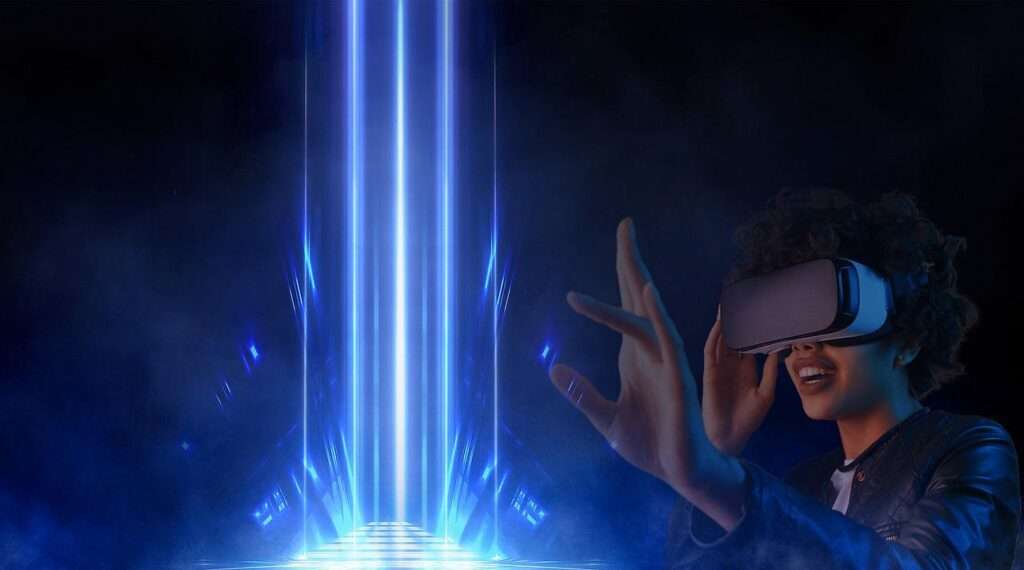With millions of online views since their debut single “I’m Real” in 2021, K-pop girl group Eternity has become hugely popular. Unlike other pop groups, all 11 members of Eternity are hyper-real virtual avatars created with artificial intelligence. This new genre of virtual artists has many advantages, including freedom from physical limitations and mental distress that human artists often face. K-pop has become a multibillion-dollar industry, and with the rise of AI, deep fake, and avatar technologies, the future of K-pop is taking a new dimension. Let’s try to figure out about K-pop in VR and South Korea Metaverse.
Everything you need to know about K-Pop in VR and South Korea Metaverse
Pulse9, a deep learning tech company, created the virtual faces of Eternity’s members. The company generated 101 fantasy faces and fans voted on their favorites. The winning characters were then animated by in-house designers according to fans’ preferences. For live chats, videos, and online fan meets, anonymous singers, actors, and dancers contracted in by Pulse9 can project the avatar faces using the technology’s deepfake filter to bring the characters to life. As deepfake technology becomes more mainstream, there are concerns about its potential to manipulate people’s images without permission or generate misinformation. Pulse9 uses the European Union’s draft ethical AI guidelines when creating its avatars, and the CEO emphasizes that they are fictional characters.
Park Jieun believes that virtual bands have an advantage in that each avatar can be controlled by their creators, which reduces the risk of scandals and protects the business. K-pop has faced social issues, such as dating gossip, online trolling, fat-shaming, and extreme dieting of band members. These issues have sparked a conversation about mental health and cyberbullying in South Korea. Especially after the tragic deaths of young K-pop stars. Singer and actress Sulli, who took a break from the industry due to malicious rumors. He was found dead in her apartment in 2019. Her friend, Goo Hara, also a K-pop artist, was found dead at her home in Seoul soon after. Goo was fighting for justice after being secretly filmed by her boyfriend and was being viciously abused online.
Evaluation of South Korea’s metaverse presence
The South Korean government’s announcement of a $170 million fund to invest in metaverse technology. It has set the stage for the country to become a top player in the field by 2026. President Yoon Suk-yeol has declared the technology a national priority. while Minister of Foreign Affairs Park Jin has stated that South Korea is set to become a metaverse powerhouse. However, some industry insiders have questioned the vision and what the technology is supposed to achieve. The metaverse is a network of 3D virtual worlds accessed through virtual reality headsets. And avatars, built around blockchains, the underlying technology of cryptocurrencies.
It seems that South Korea is heavily investing in metaverse projects. Both the government and private companies jumping on board. The capital, Seoul, is even building a virtual replica of the city to provide citizens with digital civil services. Other city governments like Busan, Seongnam, and Gumi have announced similar initiatives. South Korean internet giant Naver has set up one of the largest metaverse platforms in Asia called Zepeto. Which has 20 million monthly active users. The country’s financial institutions and banks have also launched virtual branches on the metaverse. Their own platforms to attract tech-savvy customers. In addition, South Korean companies have filed the second-highest number of metaverse-related patent applications. The programs are for virtual reality and augmented reality since 2016, owning 19% of the total.
Games vs metaverse
According to the South Korean government, the metaverse is a space. Where virtual and physical reality converge some controversy among online game developers. They feel that the metaverse should be regulated in the same way as online games.
In South Korea, video games have a negative reputation and strict rules, especially among school kids and teenagers. In addition, recent restrictions such as the ban on incorporating blockchain elements into games have added to the controversy. The metaverse, however, has much more potential as a social platform and for economic activities. And current policies separating games and the metaverse are like a “comedy.” People are even willing to go to parties in the metaverse.
Companies such as Samsung, SK Telecom, and Naver Corp. in South Korea have made moves to expand their operation. They are willing to invest in the metaverse. While President Yoon Suk-yeol has emphasized the importance of developing technology as a national priority. However, other countries are also investing heavily in the metaverse. Dubai recently unveiled its strategy for technology, aiming to create 40,000 new jobs. And boost its economy by $4 billion over the next five years. China has also unveiled a 12-page plan to stay ahead in the metaverse. In a bold move, the UAE has even established a metaverse headquarters for its Ministry of Economy, as the technology continues to grow and expand globally.
Final Words
K-Pop’s integration into the metaverse showcases South Korea’s innovative approach to digital entertainment. By leveraging virtual reality technology, K-Pop offers fans an immersive experience that transcends geographical boundaries. As the metaverse continues to evolve, it presents new opportunities for the K-Pop industry to expand its global reach.
Source:
Park, D., Mukherjee, P., & Shen, T. (2022, December 29). South Korea keeps betting on the metaverse, ignoring the current clunky technology. Forkast. https://forkast.news/metaverse-south-korea-current-clunky-technology/










